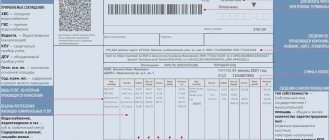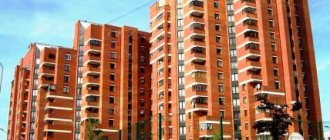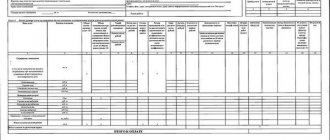It so happened that utility services in Russia have made it a practice to regularly increase payment tariffs for water supply, heating services, as well as the supply of electricity and gas. In this regard, many have difficulties with their timely payment, as a result of which it is advisable for citizens to be aware of the risks of debt on utility bills.
Every year, the country loses huge sums to its budget due to incomplete or untimely payments by citizens of the Russian Federation. As measures to combat “deviators”, management companies use many different measures - from charging penalties for late payment of housing and communal services to eviction from the apartment with its subsequent resale to pay off the debt. So, let's look at the risks and consequences of apartment debt in 2021.
Dear readers!
Our articles talk about typical ways to resolve legal issues, but each case is unique. If you want to find out how to solve your specific problem, please contact the online consultant form on the right →
It's fast and free!
Or call us by phone (24/7):
The main reasons for non-payment of utilities
There can be quite a lot of them. Let's look at the ones that happen most often:
- The owner of the property does not live at his place of registration. In this case, notifications about the existence of a debt and even subpoenas simply do not reach the defendant, as a result of which the apartment owner is faced with a situation where bailiffs suddenly come to describe the property or take the apartment altogether.
- Lack of funds to pay. Today it is quite difficult to find a well-paid job, and against the backdrop of rising tariffs for housing and communal services, the situation is getting even worse. As a result what? Accumulation of debts and, in the end, the complete impossibility of repaying them.
- Dissatisfaction with the quality of services provided or the size of tariffs for their payment. As you know, in winter some apartments are poorly heated, and there is no hot water at all. Therefore, it is not surprising that many citizens simply refuse to pay for services they did not receive.
But, nevertheless, the owner of the apartment, regardless of the reason for the debt, is liable before the law for late payment of housing and communal services. Therefore, a fundamental refusal to pay or excuses like “I didn’t know” will not help avoid responsibility. However, there are also good reasons that, of course, will not eliminate payment, but will help avoid the accrual of penalties. These include:
- Illness or disability of the owner or his close relatives;
- Minor children in the family;
- Delays in payment of wages or layoffs at work.
What to do if you have a debt
As a rule, the debtor is offered to pay the entire amount in one lump sum or enter into an agreement on debt restructuring. Usually it is concluded for six months or for a longer period if there are serious reasons - for example, a difficult financial situation. Such an agreement allows you to pay not the entire amount of the debt at once, but in equal installments over a certain time. It should be remembered that such an agreement can be concluded out of court.
If, after the court decision has entered into legal force, the defaulter continues to accumulate debt, does not comply with the requirements of the restructuring agreement, and the bailiffs have nothing to collect from the debtor, the situation in rare cases may end in the eviction of the debtor. The application of this measure is possible if it was separated into a separate requirement of the statement of claim by representatives of the utility service.
How to find out if you owe rent
As a result of debt, the homeowner may face a number of problems, so we recommend that you carefully monitor the status of your personal accounts. You can use the following methods:
- Personal visit to the housing office. Here you will be given the most comprehensive information about the presence of any rent arrears, however, the disadvantage is often the long queues at the offices of management companies.
- Internet. You can also go to the website of government services or your management company, go through a short registration by entering your personal data and personal account number and receive comprehensive information about the latest payments. Here you can pay debts for utility services online, print receipts, submit meter readings and much more.
- Call the numbers indicated on the receipts. By providing your exact address and full name, you can receive prompt information from dispatchers about the status of your personal account. However, it is not always possible to reach the office, so there is another way - to call directly to the company that provides the services (telephone numbers are often indicated on the company’s websites or on receipts sent by mail).
- Through the bank. By contacting the bank's cash desk and providing a receipt for the previous period, you can obtain complete information about the amount of debt in the account. And, having written out the bank details from the receipt, you can use the services of an ATM or bank terminal - to do this, just select the payment period and type of service, and also indicate your personal account number. As a result, you will see the amount of debt on the screen, having the opportunity to immediately pay it by card or cash. Be careful: the terminals do not give out change, so we recommend preparing the required amount in advance.
What should the owner do?
A situation can become very unpleasant when some apartment residents are conscientious payers, while others are not. Let's look at the two most typical cases. And the first of them occurs when one of the owners does not pay for utility bills.
This is important to know: Consolidation of personal accounts in a communal apartment
One of the co-owners does not pay
Let’s say two people own an apartment, both are registered and of age. The apartment does not have all kinds of meters installed. This means that the rent is very closely related to the number of people registered in the housing. It is quite obvious: the “communal apartment” should be divided into two. What if one of them doesn’t live in this apartment? There are a lot of options here.
- When you go on a business trip, for treatment, or just to visit relatives, you can reduce the amount of utility bills. You just need to prove your absence: present air or train tickets, registration documents at your place of stay, etc. You must apply for recalculation as soon as possible upon your return. In a month, no one will be doing any recalculations anymore. Absence is allowed for six months.
- What if one of the owners simply cannot live in this apartment? For example, does the second owner interfere with this? In fact, both still have to pay. The “exile” will have to act through the courts. For example, demand that obstacles to living in your own apartment be removed.
- What to do if the owners assume that disagreements may arise between them when paying for utilities? They have the right to separate personal accounts and literally pay everyone for themselves.
Finally, we will tell you what to do if tenants do not pay for utilities.
Tenants don't pay
The owner can rent out his home, and the responsible tenant can sublet it. At the same time, the obligation to pay utility bills is not shifted to the tenants. The owner or tenant is required to pay for everything, even if the actual tenants have already accumulated a significant debt. Such defaulters will have to be dealt with through the courts.
It is a little easier to find yourself in debt for utility bills than to the same creditor bank. There will be no huge fines, cosmic penalties, endless calls and visits from collectors. However, measures to combat non-paying tenants may become stricter at any time. So it is better to solve financial problems as soon as possible and without discrepancies with the law. By the way, you may not have learned how to recognize rent arrears yet, but we will tell you all the nuances! We hope that after reading this article you will be aware of what will happen if you don’t pay utilities, how to avoid paying rent penalties, and whether it’s worth doing.
Consequences or risks of rent arrears
For the owner
According to the law, responsibility for late payments for housing and communal services lies with the direct owner of the apartment - he undertakes to pay the rent on time. When a debt arises, utility services first issue a written warning that payment must be made, thereby offering to resolve everything amicably. They can also personally visit the offender in order to notify him of the possible consequences of failure to pay the debt. And, in the end, if the above actions do not have the desired effect, utility companies file a lawsuit in order to collect the debt, and its size increases by charging a penalty (penalty) for each day of delay, starting from 31 days.
The legal process usually does not last long and the management company’s claim is satisfied. According to the court decision, the owner of the apartment is obliged to repay the debt in full + interest for the delay. If the owner does not have such funds, his property (household appliances, car, apartment) is seized for the purpose of confiscation to pay off the debt. However, if the owner has the only housing, then they have no right to seize it by law.
For council housing tenants
According to the law, when renting municipal housing, a social tenancy agreement is concluded, which stipulates that the tenant bears all responsibility for full and timely payment of housing and communal services. He is obliged to pay for gas, hot and cold water, electricity, and sewerage. In this case, major repairs of the building are paid for out of the pocket of the homeowner.
So, if council housing tenants do not pay their rent on time, they face eviction - but this decision is made if there is no payment for six months or more. At the same time, they are given another room with a smaller area and worse living conditions. Tenants often avoid eviction by paying a minimum fee for services.
If the tenant subsequently violates the terms of the contract again and refuses to pay for housing and communal services, he will be evicted again, and he will be deprived of the right to receive even less living space. In case of proper payment of utilities, you can submit an application for improvement of living conditions with a request to provide housing that is more suitable in terms of square footage and living conditions.
For the tenant
Before the law, responsibility for rent falls entirely on the shoulders of the owner. Even in the case of temporary registration, tenants do not bear any responsibility to the housing and communal services for non-payment of debts, which threatens big problems in the future. In most cases, tenants pay their bills to the apartment owner, who, in turn, transfers these funds to the utility account. When signing a lease agreement, it is recommended to immediately state responsibility for late payment of utilities, for example, the accrued late fee is paid by the tenant. It is also important to note the maximum time limits for debt evasion - usually tenants are evicted after 2-3 months.
What awaits the debtor?
What happens if you don't pay rent? If the period of debt on utility bills exceeds 3 months , then the defaulter receives a notification from the management company about a possible restriction in the provision of utility services within 30 days.
If during this time the defaulter does not repay the debt for utility services, then the management company has the right to suspend the provision of services at the specified address without a court decision and apply to the courts with a demand for debt collection.
If the court makes a positive decision, a procedure will be launched to collect debts on utility bills.
Is it legal to charge for intercom every month? Find out about this from our article.
Consequences of non-payment for owners
For owners of privatized apartments, debt collection threatens an inventory and forced sale of property. After the inventory of the property, the owner is given the last opportunity to repay the debt within 5 days.
If the defaulter does not repay the debt, then the described property is seized and sold.
Also, the owner of a privatized apartment faces confiscation of wages and other sources of income to pay off the debt.
It is important to know: What utility bills are the apartment owner required to pay?
Implications for council housing tenants
For tenants of council housing, the consequences may be more serious than for owners. In addition to the measures applied to owners, the tenant faces forced eviction from the occupied living space.
By law, such measures apply to debtors whose debt exceeds 6 months.
In this case, the tenant and his family members are provided with municipal housing based on the minimum social norm (6 m2 per person).
According to the law, relocation cannot be carried out if the housing from which the tenant is being evicted is the only one available for the defaulter and his family members.
Information on the procedure for replacing hot and cold water meters can be found on our website.
Large apartment debt: how to get rid of it
Of course, it will not be possible to completely avoid paying utility debts. However, let's consider a couple of points that will help significantly facilitate this process.
To begin with, we recommend that you remember such a concept as the statute of limitations for rent bills, which by law is no more than 3 years. That is why all of them are marked “store for 3 years”. If the management company sues you to pay debts that are more than three years old, you need to respond by filing a claim that the utility company has missed the statute of limitations, as a result of which the amount of the debt may be reduced. However, be careful - if you do not submit such an application, then no one will remember the statute of limitations for you.
Another popular way to resolve a debt problem is debt restructuring. This is an agreement between the debtor and the company providing utility services, which is concluded for a certain period of time and obliges the owner of the apartment to pay the debt in installments, plus, if even a minimum amount is paid, the supply of utility services is resumed very quickly. We do not advise you to miss the opportunity to conclude a restructuring agreement, because such issues are much more difficult to resolve through the court. Moreover, management companies are very willing to meet defaulters halfway in signing a restructuring agreement, since they also do not need legal delays.
Of course, a situation where there is no money at all can happen to anyone, but in order to prevent problems with the law from arising, it is better to find out in time about the existence of debts and try to pay them off as quickly as possible.
Dear readers!
It's fast and free!
Or call us by phone (24/7).
Every year utility tariffs increase. 2021 was no exception for citizens of the Russian Federation. At the beginning of last year, a new law was adopted to tighten liability for debtors in payment for housing and communal services. What the new law implies and what punishment is provided for willful defaulters, we will consider further in the article.
How long can you not pay?
In practice, you don’t have to pay for utilities for six months. An example can explain how.
When installing meters for water and gas, you can save on payment for these services by indicating zero readings on the receipt. However, this cannot be abused for a long time, because the readings are reconciled every three months.
If meters are not installed and payments are calculated based on established standards, then if payments are not made within three months, the owner is notified of a possible limitation or disconnection of services.
Disconnection is carried out after 30 days from the date of notification to the debtor. Three days before the shutdown, the person is notified of the shutdown against signature.
However, according to the law, it is impossible to turn off heating and cold water, and it is not always possible to turn off hot water and gas. So, it turns out that payment is not made for 4 months, and the person continues to use utilities.
After a utility company files a claim in court, the case will be considered for about two months.
It will come into force within 10 days, but there are still deadlines for appealing. This way you can avoid paying for about 6 months. However, the only drawback is that the debt will grow, and so will the penalty.
Procedure for paying utility bills in apartment buildings
The procedure for paying for utilities is regulated by the Housing Code. According to Article 153 of the Housing Code of the Russian Federation, this is the responsibility of every citizen, including legal entities, who rent any premises. Housing and communal services include:
- payment for hot and cold water;
- making payments for electricity;
- making payments for heating;
- and gas supply.
According to Article 155 of the Housing Code of the Russian Federation, there is a certain period during which utilities must be paid. Payment is made every month before the 10th day upon receipt of the corresponding payment document. Military personnel, veterans and other categories of citizens enjoy payment benefits.
The maximum delay in payment for utilities can be 31 days. Previously, penalties were accrued for a month of delay; now penalties are accrued for 31 days of failure to make payments. To use installment plans and deferments, valid reasons for delaying payment are required. These include:
- serious disease;
- loss of position or sole breadwinner.
In any of the above cases, documentary evidence of the facts will be required.
What are the consequences of non-payment of utility bills?
The new law on non-payment of utilities involves the accrual of penalties for debtors who do not pay bills on time for utilities. Federal Law No. 307 discusses the procedure for calculating penalties for non-payment. Amendments have been made to the law to increase consumer discipline.
The main methods of dealing with persistent defaulters are:
- accrual of penalties;
- imposing restrictions or suspension of utility services;
- The last resort is eviction from the apartment with the help of the court.
Let's consider the above methods of punishment for late payments carried out by utility providers later in the article.
Penalty amount according to law
The most common penalty is the accrual of penalties. A penalty is a penalty for a long delay in paying utility bills. According to federal law No. 307, citizens who are overdue for payment by more than a month will be subject to penalties. You can pay your invoice within 31 days after receiving your receipt.
The total amount of the penalty depends on the size of the debt and the number of days of non-payment, as well as the refinancing rate of the Central Bank of Russia.
Rent debtors who are individuals should remember that from 31 days to 90 days, 1/300 of the refinancing rate is charged for each day the receipt is not paid. And from 91 days the penalty will increase to 1/130 of the Bank of Russia rate. Currently the rate is 9%.
The legal status of the utility consumer affects the calculation of late fees. For organizations supplying heating, water, etc., the fine will be charged as follows:
- from 1st to 60th day - 1/300 of the Central Bank interest rate;
- from 60 - 90 - 1/170;
- from 91 days - 1/130 of the interest rate.
For legal entities, the fine will be charged at the maximum discount rate - 1/130. If the debt for an apartment can be paid through the terminal, then there is no penalty. Payment can only be made at a Sberbank branch or at a management company, which should be done as soon as possible.
The accrual of penalties can be avoided if the citizen has to leave for another city for a long period. The interested party is obliged to write a statement to the management company and notify about this fact. The deferred payment will be valid for six months. If an extension is required, the next application is sent by mail.
What are suppliers entitled to?
In addition to charging penalties, utility service providers have the right to resort to other measures to punish debtors. For late payment of more than 3 months, the supply of gas, electricity, water will be disconnected or limited for non-payment of utilities. The supplier has the right to act in accordance with these regulations until funds are received from the debtor. Notification of the defaulter is made in writing by mail. After 3 days, if the notification is ignored, the notification is made personally by an authorized person.
Eviction from an apartment for debt is also possible. However, it applies to citizens who rent living space. to
evict the owner from a privatized apartment.
The impetus for this procedure is not the total amount of debt, but the time period of non-payment of utility bills - more than 6 months.
Is it possible to collect debt in court?
In that situation, if tariffs for utility services are not paid by a citizen on time, then the total amount of debt is constantly and steadily growing. Failure to make payments on the required dates has a detrimental effect on the financial position of the providers of these utility services themselves, causing them considerable problems and losses.
In order to somehow compensate for the costs incurred and repay the debt incurred, utility service providers always have the opportunity to directly apply to the court for the issuance of an appropriate court order or apply there with a statement of claim.
Based on the results of such an appeal, the court takes measures to forcefully collect funds from the willful defaulter.
In turn, for the debtor, collection of financial debt in court can often entail a number of negative factors:
- when repaying a debt, bailiffs can seize all sources of income of the defaulter, taking away up to 50% of all earnings until the debt is fully repaid;
- compensation for losses can also be applied to many monetary capitals that are stored in savings accounts of banking organizations;
- In payment of the debt, foreclosure may also be imposed on any movable and immovable property (with the exception of the only housing that is owned by the offender);
- at the same time, within the boundaries of enforcement proceedings, the bailiff himself has every right to prohibit the debtor from any travel abroad in order to avoid evasion of non-payment of utilities;
All these penalties, which are imposed on the debtor as a result of debt compensation in court, are provided for by the Federal Law entitled “On Enforcement Proceedings”.
Where can I complain about illegal shutdowns?
The Federal Law on Rent provides for utilities that do not have the right to be turned off, even if payment is not received - heating and cold water supply
.
Disabling any type of utility service without proper warning from suppliers is illegal!
This unlawful action can be appealed. The complaint can be sent to the management company or the HOA. If mutual agreement cannot be reached, the claim is sent to the state housing inspectorate or Rospotrebnadzor. This is followed by filing a written application with the prosecutor's office and the court.
Where to go to solve problems
The first and most obvious option is a management company. They will check that the rent has been calculated correctly. If her answers do not suit the tenant, then you can then contact the supervisory authorities. If you suspect financial fraud, then you should contact the State Housing Inspectorate, and if we are talking about the quality of services provided or their non-provision, then Rospotrebnadzor will help.
The last resort is the court, where the tenant can appeal any actions of the utility companies, but it will be up to the plaintiff, that is, you, to prove that someone is wrong. Be prepared for bureaucratic red tape and possibly even hiring a lawyer.










